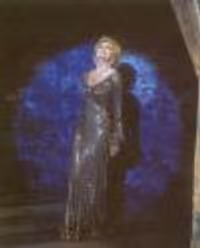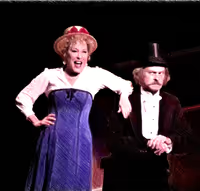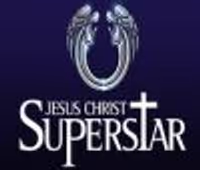CANDIDE - your thoughts compare/contrast
Joined: 12/31/69
#1CANDIDE - your thoughts compare/contrast
Posted: 7/6/13 at 12:16pm
Always wanted to catch a production of Candide.
Caught the Chenoweth one on film
but just curious...
has anyone seen any other versions?
Thoughts on the show? what works/what doesn't.
It's been shortened, since the 50's version.
Does anyone have any access to the National Royal 1999 version?
It's something that's been growing on me but there are no productions of it anywhere.
Is it because it's difficult to pull off- or just over people's heads.
Voltaire's novel is a great read- just never been exposed to the musical.
If anyone can offer true insight- it would be great.
#2CANDIDE - your thoughts compare/contrast
Posted: 7/6/13 at 12:55pm
In my opinion, the original production was the best, but I'm in the minority there. Here are my takes on three of the productions:
ORIGINAL: While straying from the novella quite a bit, it (reads) as fast paced and entertaining, especially with the score. Some songs were cut including "Dear Boy" which was originally part of the (unrecorded) "Lisbon Sequence". The cast recording is the best of them all: Barbara Cook is the true Cuneguande.
Musical numbers
Act 1
Overture - Orchestra
Scene 1: Westphalia
Opening: The Best of All Possible Worlds - Dr. Pangloss, Chorus, Cunegonde, Candide
Duet: Oh, Happy We - Candide and Cunegonde
Chorus: Wedding Chorale - Chorus
Scene 1A: Candide Travels to Lisbon
Meditation: It Must Be So - Candide
Scene 2: Lisbon
Ensemble: Lisbon Sequence: Lisbon Fair / The Prediction / Dear Boy / The Inquisition: Auto-de-Fe* - Infant Casmira, Conjuror, Pangloss, The Inquisitors, and Chorus
Ensemble: Lisbon Sequence: Lisbon Fair / The Prediction / Pray For Us - Infant Casmira, Conjuror, and Chorus
Scene 2A: Candide Travels to Paris
Meditation: It Must Be Me - Candide
Scene 3: Paris
Mazurka: The Paris Waltz - Orchestra
Aria: Glitter and Be Gay - Cunegonde
Duet: You Were Dead, You Know - Candide and Cunegonde
Scene 3A: They Travel to Buenos Aires
Ensemble: Pilgrims' Procession - Pilgrim Mother, Pilgrim Father, Cunegonde, Old Lady, Candide, Chorus
Chorus: Alleluia - Pilgrims
Scene 4: Buenos Aires
Serenade: My Love - Governor of Buenos Aires, Cunegonde, Old Lady
Tango: I Am Easily Assimilated - Old Lady, Chorus, Cunegonde
Quartet: Finale Act I - Candide, Cunegonde, Governor of Buenos Aires, Old Lady
Act 2
Entr'acte - Orchestra
Scene 1: Buenos Aires
Trio: Quiet - Old Lady, Governor of Buenos Aires, Cunegonde
Ballad: Eldorado - Candide, Chorus
Schottische: Bon Voyage - Chorus, Governor of Buenos Aires
Scene 2: Venice
Ensemble: Money, Money, Money (Venice Gambling Scene) - Croupier and Gamblers
Waltz: What's the Use? - Madame Sofronia, Ferone, Prefect of Police, Prince Ivan, Chorus
Gavotte: The Venice Gavotte - Madame Sofronia, Candide, Dr. Pangloss, Cunegonde
Scene 3: Westphalia
Finale: Make Our Garden Grow - Candide, Cunegonde, Company
*This version of the "Lisbon Sequence" was rewritten after the Boston try-out; it introduced the songs "Auto-de-Fe" and "Dear Boy", which were reinstated back into most revivals.
HAL PRINCE REVIVAL: The worst production, in my opinion. It goes back to the novella, but has a few liberties and horrible scaled-back orchestrations (The Overture is mutilated). The casting was a problem for me and the recording has so much annoying dialogue I find it difficult to enjoy. The new songs are interesting, including an introduction with lyrics by Stephen Sondheim, but placing it all in one act makes it seems rushed, and not in a good way (Candide should feel "fast-paced" not "rushed").
Overture ..... Orchestra
Life Is Happiness Indeed ..... Candide, Cunegonde, Maximillian, Paquette
The Best of All Possible Worlds (ii) ..... Dr. Pangloss, Candide, Cunegonde, Maximillian, Paquette
Oh Happy We ..... Candide, Cunegonde
It Must Be So ..... Candide
O Miserere ..... Chorus
Oh Happy We (reprise) ..... Candide, Cunegonde
Glitter and Be Gay ..... Cunegonde
Auto-da-fé (What a Day!) ..... Company
This World ..... Candide
You Were Dead, You Know ..... Candide, Cunegonde
I Am Easily Assimilated ..... Old Lady, Three Spanish Dons
I Am Easily Assimilated (reprise) ..... Old Lady, Candide, Cunegonde
My Love ..... Governor, Maximillian
Alleluia ..... Company
Sheep's Song ..... 1st Sheep, 2nd Sheep, Lion, Paquette, Candide
Bon Voyage ..... Governor, Company
The Best of All Possible Worlds (ii) (reprise) ..... Old Lady, Candide, Paquette, 1st Sheep, 2nd Sheep
You Were Dead, You Know (reprise) ..... Candide, Cunegonde
Make Our Garden Grow ..... Company
NATIONAL THEATER REVIVAL: A very good production. It follows the Novella to an insane degree, includes many songs headed by a wonderful cast. The libretto is an expanded version of the Hal Prince Revival, but the recording is (thankfully) exclusively musical. The two act structure makes it more breathable, but because of lyric and scene changes, the "Quartet Finale" no longer makes musical sense (It is to the tune of "My Love" which preceded it in the original production, but was moved to the second act to follow the Novella). It also doesn't leave you on a cliffhanger (everything is "Optimistic", whereas in the original, Candide was on the run from the law, trying to find Eldorado, Cuneguande is marrying the Governor for Candide, unknowest to her, the Governor has no intention of wedding her, he just wants sex), however in regards to doing the Novella justice, it was a tremendous success. My only other issue besides the Act I Finale, is the changes in lyrics to "What's The Use?", which are wonderful in the original production, but are sub-par at best in this version, but they were changed to follow the Novella.
Act 1
Overture
Westphalia Chorale
Life Is Happiness Indeed
Life Is Absolute Perfection
The Best of All Possible Worlds
Universal Good (Quartet)
Oh Happy We
It Must Be So (Candide's Meditation)
Candide's Lament
Dear Boy
The Paris Waltz
Glitter and Be Gay
Auto-da-fé (Oh, What A day)
You Were Dead, You Know
I Am Easily Assimilated (Old Lady's Tango)
Quartet Finale
Act 2
Entr'acte
We Are Women
My Love (Governor's Song)
Alleluia (The Pilgrim's Procession)
Eldorado
Bon Voyage
It Must Be Me (2nd Meditation)
Words, Words, Words
Money, Money, Money
The Venice Gavotte
Nothing More Than This
Whats The Use?
The Kings' Barcarolle
Universal Good (Full Company)
Make Our Garden Grow
#2CANDIDE - your thoughts compare/contrast
Posted: 7/6/13 at 1:10pm
The score is one of the best ever written. But it is problematic because no revision will ever make the show fully satisfying- the novella is far too episodic, matter-of-fact, and fast-paced to faithfully be staged, and any substantial revision to the novella deeply compromises it.
There are clips of the Prince-directed NY opera production from the 80s on YouTube; that version is an expansion of the 70s script.
The best thing to do, in terms of recording, is assembling a playlist a la carte. Mine uses the OBC heavily, with NY opera, National Theatre, and 90s revival filling in the gaps.
Bernstein's "final revision" is not at all the best- far too serious, slow, and overstuffed (and two syphilis songs for Pangloss back-to-back).
#3CANDIDE - your thoughts compare/contrast
Posted: 7/6/13 at 4:06pmHal Prince's theatre-in-the-round version was great fun, if you didn't mind all the peanut shells.
ARTc
Stand-by Joined: 11/4/11
#4CANDIDE - your thoughts compare/contrast
Posted: 7/6/13 at 5:05pmI enjoyed the 1973 revival. I thought the environmental stage was so much fun.
#5CANDIDE - your thoughts compare/contrast
Posted: 7/6/13 at 6:14pm
I saw the Hal Prince version in 1975 on Broadway and it was pure fun. I still consider it one of my favorite nights at the theatre ever.
The new version Mary Zimmerman did for Washingtons Shakespeare Theatre that has been going around the country is brilliant. She took Bernsteins score and wrote a completely new book that is more faithful to the Voltaire original. I'm disappointed this has never come to Broadway.
Broadway Legend Joined: 12/31/69
#6CANDIDE - your thoughts compare/contrast
Posted: 7/6/13 at 6:49pm
Thanks for all the great insight.
its strange not many companies do this- why so?
is it difficult to stage? or is it too scary for regional, community theaters to produce?
It seems like a great show--
#7CANDIDE - your thoughts compare/contrast
Posted: 7/6/13 at 7:04pmIt is a demanding show vocally and technically and requires a sizable cast. And then there's the question of which version to produce.
#8CANDIDE - your thoughts compare/contrast
Posted: 7/6/13 at 8:44pm
I should hope community theaters would be afraid of CANDIDE, both in terms of vocal and technical demands! As for regional, Gordon Davidson did a dreadful production at the Ahmanson, but it was no worse than his A LITTLE NIGHT MUSIC; so I feel certain the problem was Davidson, not the piece itself.
I loved the NYC Opera production. That version didn't solve all the book problems, but it was so gloriously sung, who cared?
(But I agree with gossipguy, although Erie Mills sang it at least as well, Barbara Cook is always Cunegonde in my mind.)
#9CANDIDE - your thoughts compare/contrast
Posted: 7/6/13 at 10:54pm
There's also an expectation that if you're going to do Candide, you're going to attempt to 'fix' it.
But there's no real fix for it. And, perhaps this is heresy, the problems do not lie alone with the book exclusively in any of its incarnations. The score's gloriousness also hinders any production, simply because it doesn't always fit with the story that is attempted at being told.
#10CANDIDE - your thoughts compare/contrast
Posted: 7/6/13 at 11:04pm
Interesting, Kad. As I read this thread I was thinking that audiences today are used to highly conceptual productions where place is basically established with instantaneous lighting changes, so the set changes that slowed the original production to a crawl really aren't an issue any more.
Do you have any examples of how the score and book work at cross purposes? (Serious question. I assume you are correct; I'm just interested in your thinking.)
AwesomeDanny
Broadway Legend Joined: 7/30/09
#11CANDIDE - your thoughts compare/contrast
Posted: 7/6/13 at 11:34pm
I do agree with Kad--the score is one of my favorites ever written, but it does try to take itself a bit too seriously. While the book is at times very profound and gorgeously written, it almost always retains its comedic qualities while doing so.
Also, the opening sequence goes on for a bit too long. What is just a few pages in the book ends up around twenty minutes on the stage. While I don't think this part drags, I think that it makes the audience expect a different kind of story.
#12CANDIDE - your thoughts compare/contrast
Posted: 7/7/13 at 8:57am
Gaveston, I assume you have read the novella and will agree with me when I say it is extremely fast-paced. There is very little stopping and pausing to muse- it's very "this happened and then this and then this and then this." It's such a sendup of globe-trotting picaresque stories, filled with convolutions and improbabilities. Voltaire can move his plot along more in one sentence than most authors can in an entire chapter. The novella's briskness is part of what makes it so effective- things are presented in such a matter-of-fact tone.
Bernstein's score will often take very small moments and turn them into large musical moment- "Auto da Fe," depending on the version, can run anywhere from 5 to nearly 10 minutes. There just isn't much room in the story for musical indulgence, considering how much needs to be covered.
Pangloss explains his syphilis and how it fits in with his philosophy in brief summation- Bernstein's final version gives him a full-length solo and then a patter section stuck into "Auto da Fe," both on the same topic. This is to say nothing of the several chorales added into the show which comment on action or lessons. And "The Venice Gavotte," which was cut, turned into "Life is Happiness Indeed," and then sometimes re-inserted back into its original place in the last third of the show. It's a repetitive song- it's clever and cute- but does not move the substantial plot along at a point when that thing better be flying toward the conclusion. And then it'll be either preceded or followed by "What's the Use?"- another comic diversion song about how money is quickly made and lost and passed along. At this point in the story, after we have seen Candide be swindled by EVERYONE IN THE WORLD, a song about how everyone is being shaken down or conned by everyone else stops the action cold.
The novella is also laser-focused on Candide, whereas the musical will take time to see what's happened with Cunegonde or Paquette and Maximillian, or giving musical numbers to minor characters like the Governor or Vanderdendur (this is mostly an issue in the 2nd act- some variations will even insert Cacambo or Martin and his song, "Words Words Words," which at this point in the show is very late to be introducing a major character).
Simply put, most of the numbers do not advance the action. Rather, they stop it in order to have character moments. Or because it's time for a song. For a show like Candide, this puts a lot of pressure on the libretto.
I agree with AwesomeDanny- the opening sequence is very lengthy and sets up a sort of strange comedy of manners that never happens. It also gives undue focus to Maximillian and Paquette.
It says a lot that the most successful incarnation of the show- critically and commercially- was Hal Prince's one-act revival. I am not saying this is the BEST version, or that its overly broad, comedic tone is what is best for the piece. It moved the focus away from the musical indulgence of the score (which I am sure is not something that makes for good cast recordings) to the forward action of the substantial story. It is also the only version to make substantial cuts to the score- and they weren't afraid to cut beloved songs like "Ballad of Eldorado" and "What's the Use?" and "Quiet," to boot!
Or, let's put it this way: the novella, in the version I own, is 94 pages. Why the heck is the show so often close to, or surpassing, 3 hours? And the fault cannot be always placed on the book.
#13CANDIDE - your thoughts compare/contrast
Posted: 7/7/13 at 1:22pmI absolutely adore the '73 version and have listened to the recording of it over and over. It's the closest the show has ever come to actually working as a piece of theater for me, and I have, in some way or another, "seen" every major version besides the 90s broadway revival (OBC, '73, NYO, Scottish Opera, Lonny Price). I even love the overture.
#14CANDIDE - your thoughts compare/contrast
Posted: 7/7/13 at 2:39pm
I was lucky enough to see the RNT John Caird revised version and I thought it was the best of all possible worlds--on stage, anyway. The revised script is IMHO perfect, and I have no idea why anyone would want to use a different version. On CD the sometimes weak voices and the sometimes small orchestra make it far from the ideal recording, though.
Charley, did you see that production? I'd be curious as to your thoughts.
#15CANDIDE - your thoughts compare/contrast
Posted: 7/7/13 at 3:09pm
Said it before, will say it again:
My ideal Candide, much to Namo's surprise, doesn't involve an ethnic cast or venue. Mix the sumptuous original '56 Broadway orchestrations (and the similarly sumptuous opera house versions of any other musical material used in the Caird version), with the environment aspect of the '73 production, and the script and song stack of the '99 Caird.
Broadway Legend
joined: 5/1/05
Blocked: After Eight, suestorm, david_fick, emlodik, lovebwy, Dave28282, joevitus, BorisTomashevsky, Seb28
#16CANDIDE - your thoughts compare/contrast
Posted: 7/7/13 at 10:06pm
Thank you, Danny and Kad.
Kad, yes and yes, I agree with your characterization of the novel's pace and style. And I agree the 20-minute opening sequence leads the audience to expect something very different than what will ensue.
I wonder if the score and book could be revised so that CANDIDE works like FORUM, where the songs are brief (and imo welcome) breaks in the breakneck action. Of course, the songs in FORUM (with the exception of Milos Gloriosus' entrance) tend to be short and to the point.
Broadway Legend Joined: 12/31/69
#17CANDIDE - your thoughts compare/contrast
Posted: 7/9/13 at 4:04pm
anyone like the 2009 version with Michael Slattery?
directed by Enrico Castiglione...
i was thinking of picking that version up- just didn't know if it compares to any of the ones you are talking about.
#18CANDIDE - your thoughts compare/contrast
Posted: 7/9/13 at 4:08pm
The new version Mary Zimmerman did for Washingtons Shakespeare Theatre that has been going around the country is brilliant. She took Bernsteins score and wrote a completely new book that is more faithful to the Voltaire original. I'm disappointed this has never come to Broadway.
Maybe because, at least based on the song lists I've seen, she essentially took Caird's plot construct (if not actual words) and stuck her name on it.
Broadway Legend
joined: 5/1/05
Blocked: After Eight, suestorm, david_fick, emlodik, lovebwy, Dave28282, joevitus, BorisTomashevsky, Seb28
FindingNamo
Broadway Legend Joined: 7/22/03
#19CANDIDE - your thoughts compare/contrast
Posted: 7/9/13 at 4:20pmOf COURSE you didn't see it but your internet expertise comes galloping through anyway.
#20CANDIDE - your thoughts compare/contrast
Posted: 7/9/13 at 8:50pm
Like a bolt of lightning, you answer the call. Knew you'd be here sooner or later.
This is Caird's song list: http://sondheimguide.com/Candide/99rnt.html
This is Zimmerman's song list:
http://www.curtainup.com/candidezimmerman.html
Plus or minus a few songs, the songs occur in exactly the same places in the story, and in much the same running order. Even the reasons they chose the songs they did for the slots they did make the same kind of sense. I repeat: maybe if she wasn't reinventing Caird's wheel, her version would have transferred. But it looks like she did, and last I checked, it didn't.
So button your lip about my "internet expertise" before I button it for you.
Broadway Legend
joined: 5/1/05
Blocked: After Eight, suestorm, david_fick, emlodik, lovebwy, Dave28282, joevitus, BorisTomashevsky, Seb28
FindingNamo
Broadway Legend Joined: 7/22/03
#21CANDIDE - your thoughts compare/contrast
Posted: 7/9/13 at 8:55pmGrow up, junior. Unlike you I've seen the Zimmerman version. Live. In person. In a theater. Hard as it may be for you to grasp, transferring is not the end goal of every production.
#22CANDIDE - your thoughts compare/contrast
Posted: 7/9/13 at 9:00pmEspecially if others will be as likely to point out the similarities, especially in a major city.
Broadway Legend
joined: 5/1/05
Blocked: After Eight, suestorm, david_fick, emlodik, lovebwy, Dave28282, joevitus, BorisTomashevsky, Seb28
FindingNamo
Broadway Legend Joined: 7/22/03
#23CANDIDE - your thoughts compare/contrast
Posted: 7/9/13 at 9:02pmWHO CARES?
#24CANDIDE - your thoughts compare/contrast
Posted: 7/9/13 at 9:03pm
You do. You're still posting here.
(hums "So What?" to self)
Broadway Legend
joined: 5/1/05
Blocked: After Eight, suestorm, david_fick, emlodik, lovebwy, Dave28282, joevitus, BorisTomashevsky, Seb28
Videos







